Will a dollar decline be good for stocks? It is an interesting question, given that during 2022 there was a significant non-correlation between the dollar and the stock market. The strong dollar rally was something I suggested could be a problem for stocks, given what happened in 2020. It was a running debate with Michael Brush, who writes for MarketWatch.
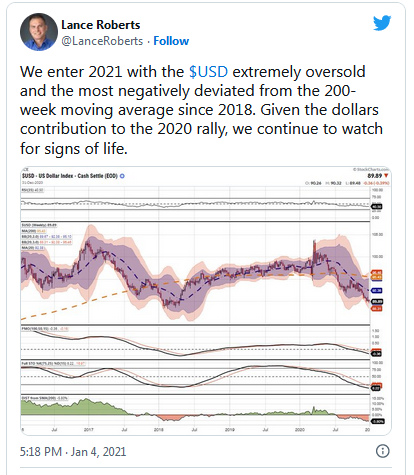
He argued the dollar would remain weak, leading to a continued stock market rally. Contrarily, our argument also underpinned our thesis to buy energy stocks in November of that year as the most hated assets became leaders.
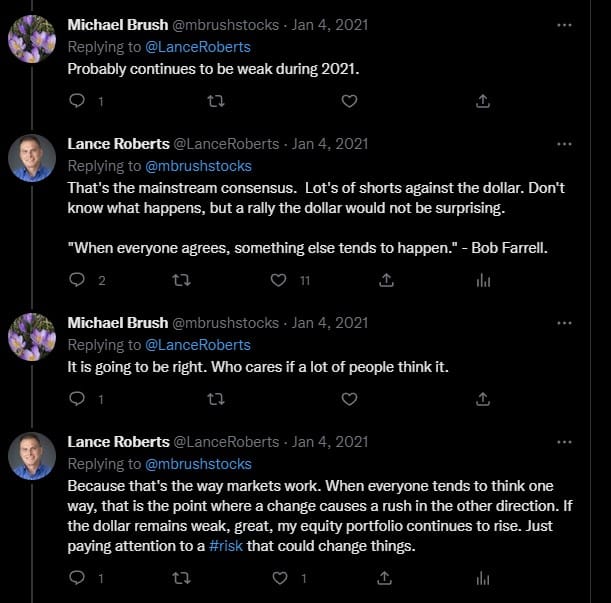
That last comment is the most important. In 2021, the dollar decline provided a tailwind to stocks. Such makes sense, given that 40% of corporate revenues are from international sales.
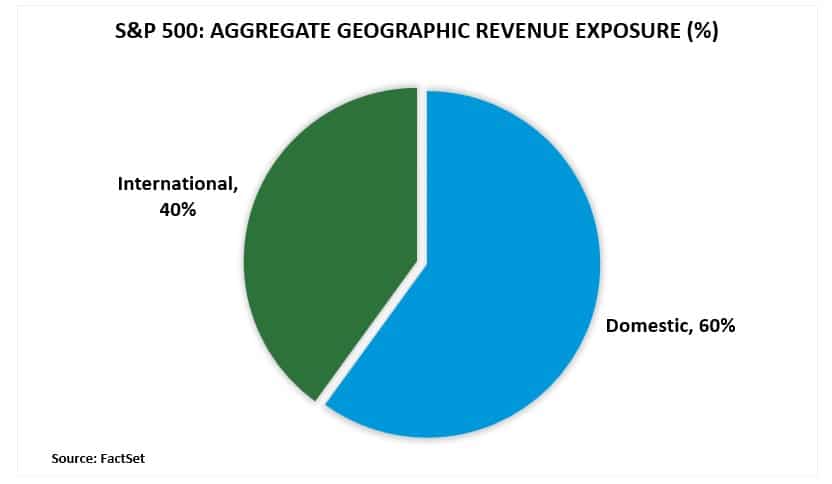
As I stated to Michael, the risk to portfolios is a reversal in the dollar decline that would impair portfolio performance. That dollar decline ended in mid-2021, and the dollar rally began.
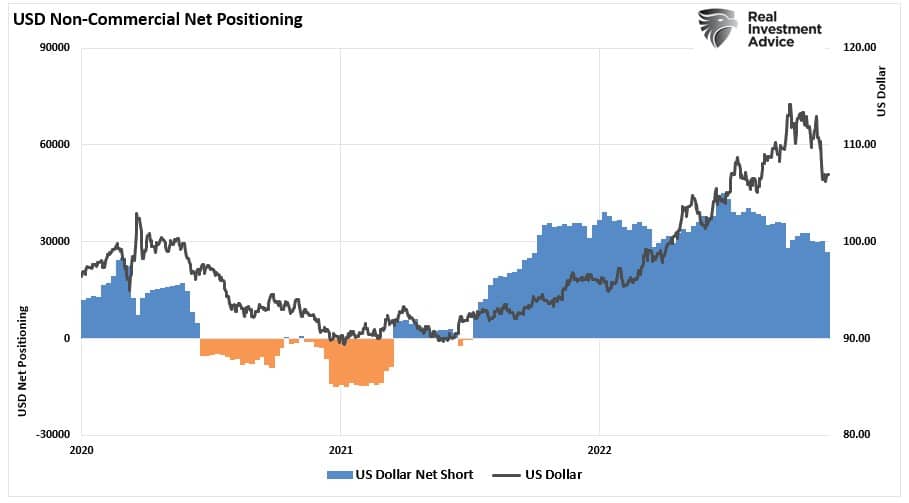
The problem with a strong dollar is that it makes foreign purchases of U.S. products more expensive. In an already weak economic environment and surging inflation, the strong dollar acts as a “tax” on foreign consumption.
In recent years, allegations of countries “manipulating their currencies” were a topic of hot debate. However, the reality is that all countries, including the U.S., manipulate their currency to maintain a relative balance between currencies. As such, there is ultimately a point where an attack on the strong dollar will occur either through a drop in demand or Central Bank interventions. The dollar rally in 2022 has likely reached the point where interventions or a deep economic recession will reverse that trend.
However, will a dollar decline in 2023 lead to a strong rally in the stock market?
Dollar Bear = Stock Bull?
Given the strong non-correlation in 2022, it would seem logical that a dollar decline would lead to a more robust stock market in 2023. However, since 1993, analyzing the 3-month percentage change between the dollar and equities, there is little evidence of any correlation.
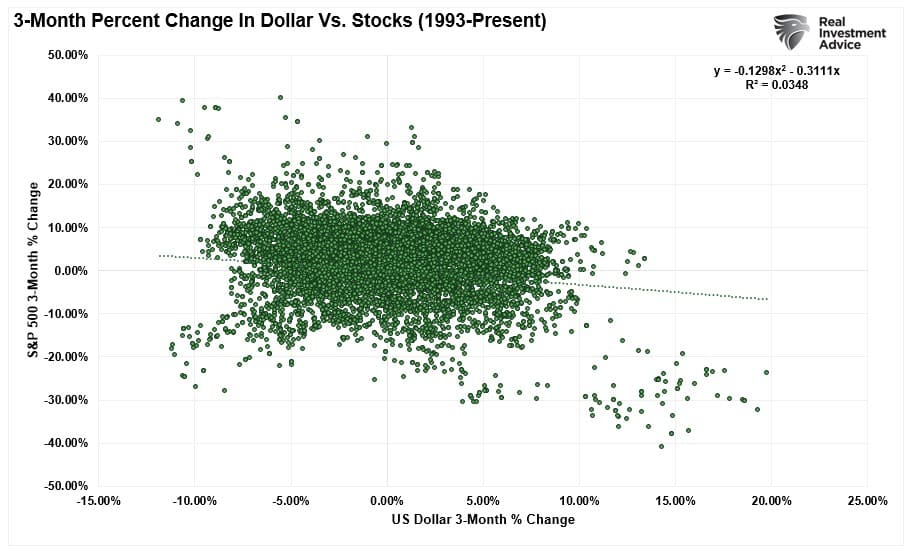
2022 was an excellent example of when correlations fail. A strong dollar should damage energy company profits, given that oil is trading in dollars globally. An unfavorable exchange rate should make global oil demand fall, impacting energy stocks due to weaker earnings. However, 2022 was a banner year for the energy complex with record profits and soaring stock prices.
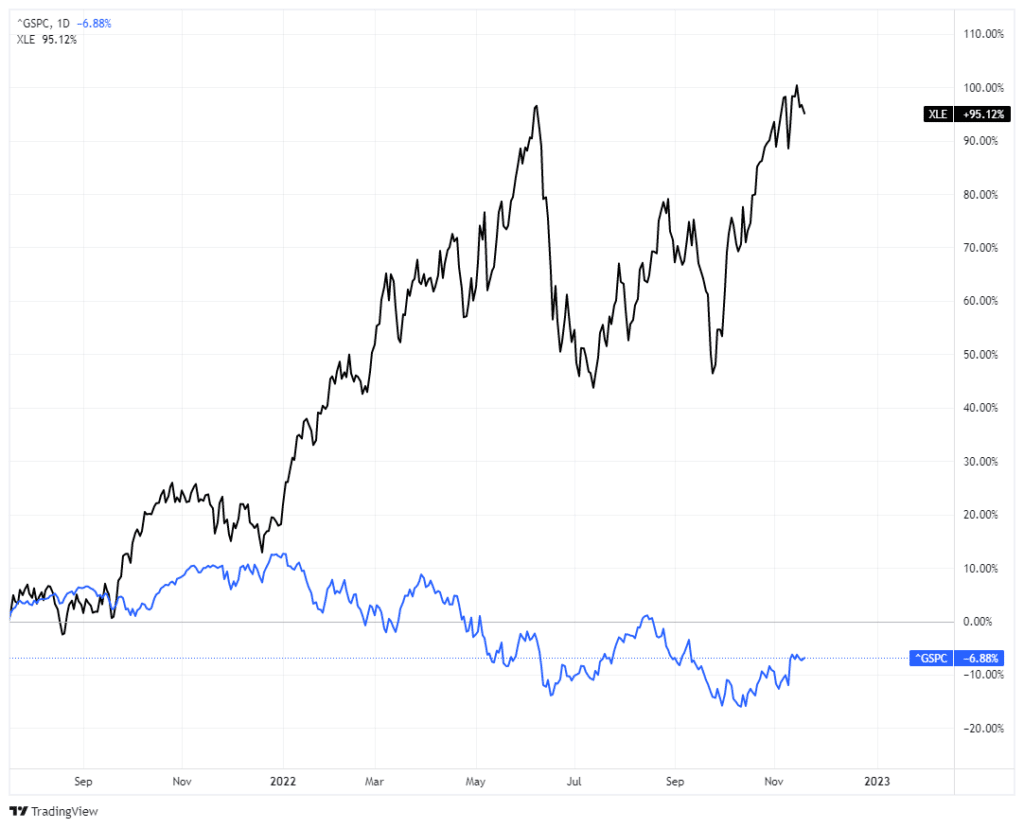
As we head into 2023, we expect a rather sharp dollar decline. Such should be the consequence of Federal Reserve rate hikes and aggressive policy tightening, sparking an economic recession. As we discussed, our monetary policy conditions index, which combines the dollar with inflation, interest rates, and Fed funds, suggests an economic contraction is the most likely outcome. Historically, a dollar decline coincides with economic slowdowns and recessions, which is not surprising as demand for goods declines.
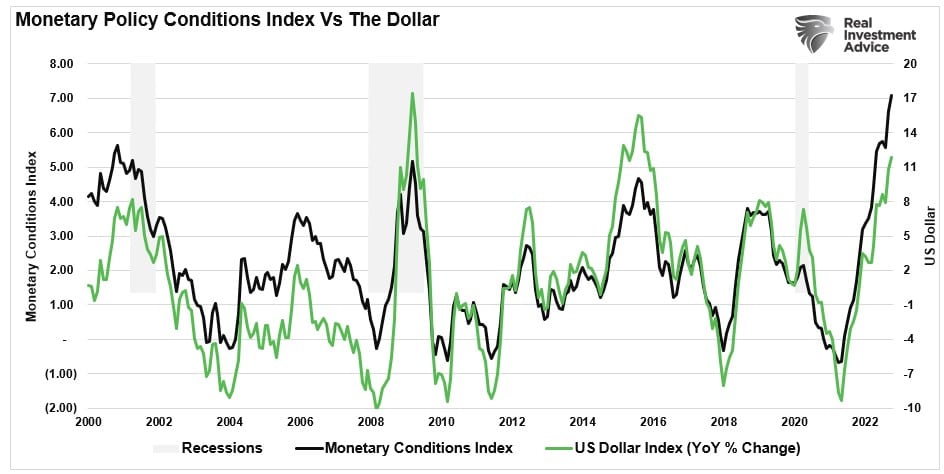
The presumption is the non-correlation will continue, and a dollar decline will guarantee stock investors positive returns in 2023. While such is possible, as noted, there is no historical correlation. If monetary conditions reverse, such has not initially led to stronger investment returns.
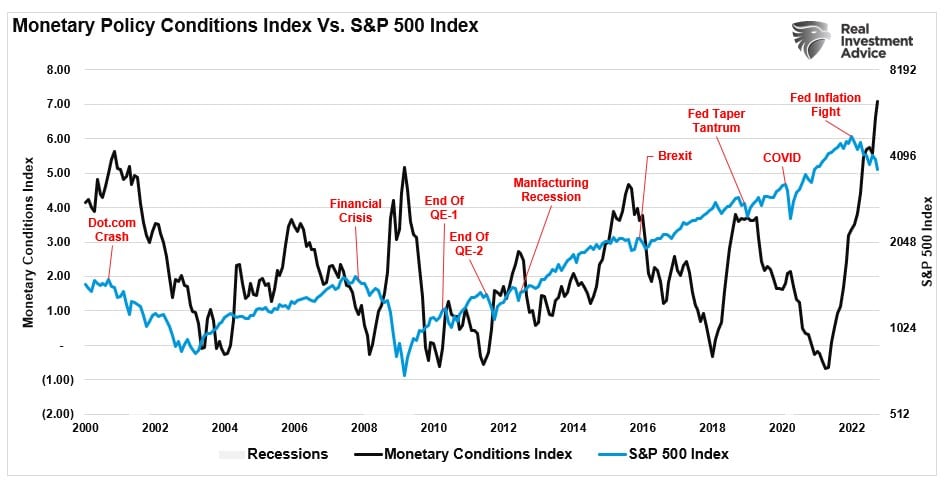
The Fed Broke Something
Part II of this article will discuss why you want to “own bonds” in the first half of 2023 and stocks during the second half.
If I am correct, it will be because the Federal Reserve broke something economically or, more critically, something credit related. Such was a point we made in the “Policy Pivot May Not Be Bullish.”
“The bullish expectation is that when the Fed finally makes a “policy pivot,” such will end the bear market. While that expectation is not wrong, it may not occur as quickly as the bulls expect.
Historically, when the Fed cuts interest rates, such is not the end of equity ‘bear markets,’ but rather the beginning. Such is shown in the chart below of previous ‘Fed pivots.’
Notably, the majority of ‘bear markets’ occur AFTER the Fed’s ‘policy pivot.’
When an event occurs, and the Fed initially takes action, the market reprices for lower economic and earnings growth rates.”
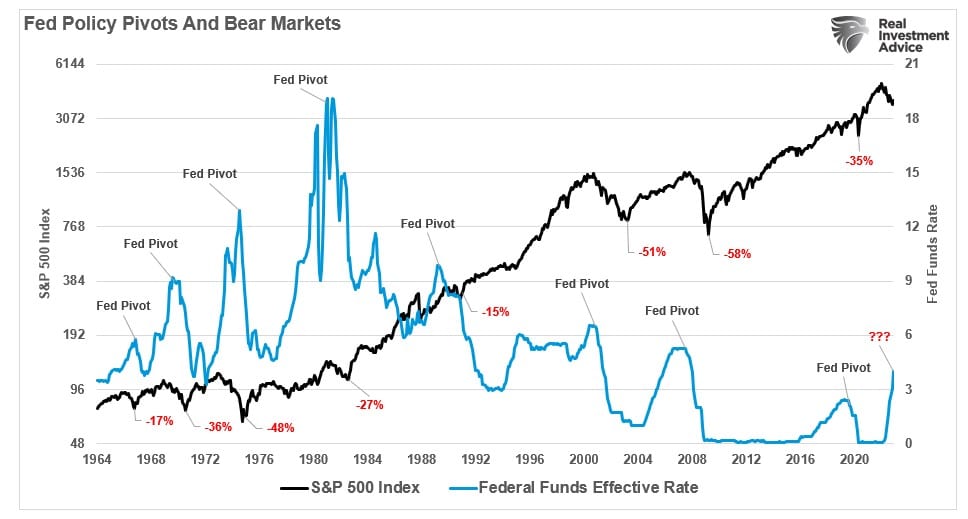
As stated, the dollar decline will likely not be “initially” bullish for stocks. It will likely be more favorable for bonds as the market reprices for slower economic growth, recession, or some credit-related event. However, once that repricing is complete, the dollar decline will become a tailwind for corporate revenues and commodity-related sales.
Of course, there is no guarantee that 2023 will play out as we think. That is the “risk” of investing in the financial markets. Limitless variables will impact the financial markets, from Central Bank interventions to economics to geopolitical concerns. However, all we can do as investors is pay attention to what history can teach us about how markets are affected by dollar declines and rallies.
The risk of an economic reversion remains a likely probability. Once the reversion sets in, the Fed cuts rates to zero and restarts the next “Quantitative Easing” program, such will start the next bull market cycle.
We will certainly want to buy that opportunity when it comes, regardless of what the dollar is doing.
